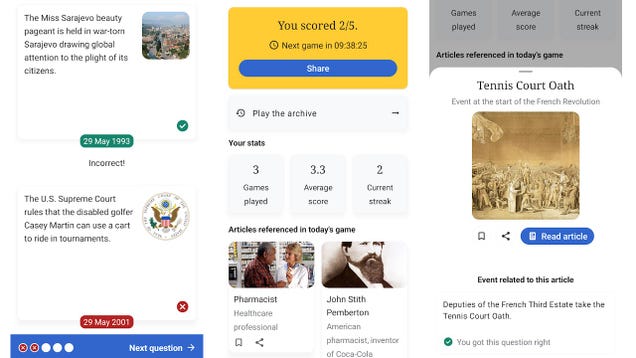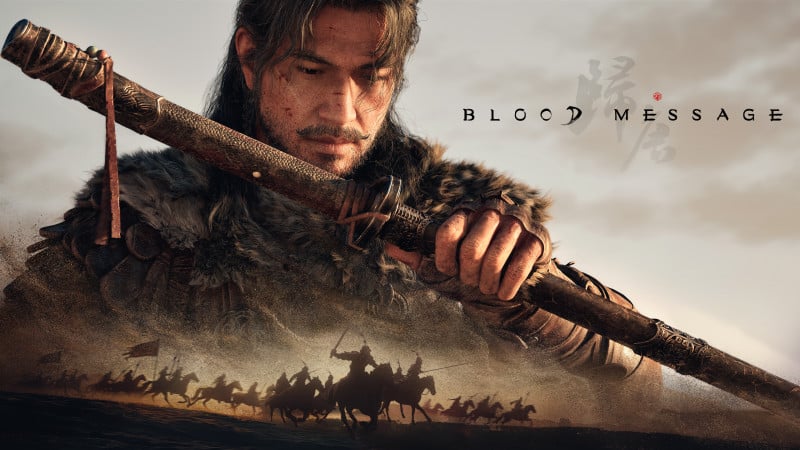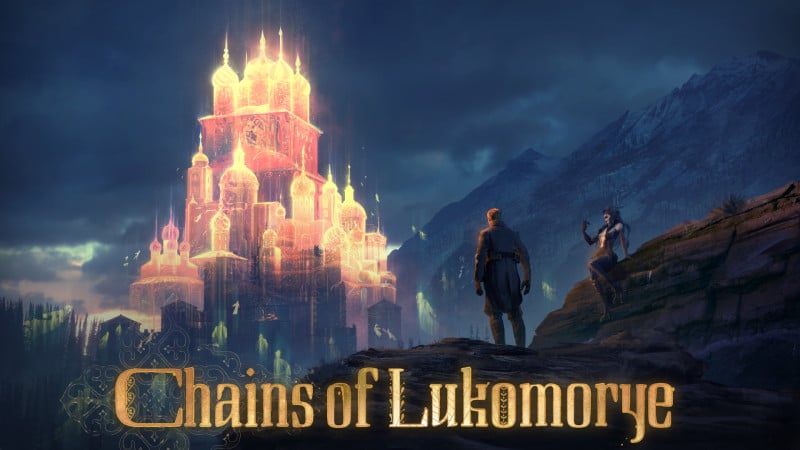
Dungeons & Dragons Publisher Reveals How Stranger Things and the MCU Influenced Their New Campaign
To mark 50 years of Dungeons & Dragons, Wizards of the Coast knew it had to go big. With audiences now accustomed to multiverse-centric stories with serious stakes, the story designers at Wizards felt confident to channel mainstream pop culture into tabletop form as a way to celebrate its long history. In doing so, Wizards is looking to make some amends with its community of players.
Speaking to IGN at GaryCon 2024, Wizards of the Coast representatives, including senior designer Amanda Hamon and senior story designer Chris Perkins, revealed how the big campaign module of 2024, titled Vecna: Eve of Ruin, was inspired by movies like Avengers: Endgame and shows like Stranger Things.
“I think it certainly revealed to us that the audience and the world at large is ready for a story like this,” Hamon tells IGN after she’s asked about the high profiles of multiverse films like Everything Everywhere All at Once and the Marvel Cinematic Universe.
“They’ve responded to multiverse stories like the ones [IGN] mentioned. There’s a lot of interest in high stakes, really epic storytelling that involves a lot of different places, lots of different characters. It felt like an opportunity for us to do something that maybe wouldn’t have resonated very well maybe just ten, twenty years ago.”
In Vecna: Eve of Ruin, releasing at retail on May 31, the Dungeons & Dragons multiverse is under threat by Vecna, the powerful lich wizard whose origins in D&D dates back to 1976. If you’re not too familiar with D&D but know the name Vecna, that’s because the kids of Hawkins, Indiana borrowed that name to identify their own menace in the fourth season of Netflix’s Stranger Things.
Eve of Ruin is not about Vecna seeking to decimate the multiverse nor wipe out half its population, like Marvel’s Thanos wanted. Instead, Vecna wants to reimagine the multiverse in his image, to transform all of existence into ghoulish monstrosities like himself. This prompts a trio of wizards — the characters Mordenkainen, Tasha, and Alustreil Silverhand — to form an alliance and “wish” before them heroes to stop Vecna. This is how the players sitting around tables enter the story, in which their characters are tasked with traversing the multiverse to reassemble the Rod of Seven Parts (also a classic D&D artifact) to stop Vecna.
Hamon admits Vecna: Eve of Ruin was conceived “significantly after” Stranger Things Season 4. But beyond Vecna’s newfound celebrity by mainstream audiences, Hamon and Wizards at large were drawn to Vecna as a prominent monster from D&D’s past to resurrect for the game’s 50th anniversary.
”I’m a fan of Stranger Things and a lot of folks on staff are fans of Stranger Things. I thought that [fourth season] was really cool storytelling. I knew that audiences were familiar with Vecna. So when we were looking at characters that we wanted to use and what big, historical threats we might want to consider for this book, Vecna was really at the top for me because he had been depicted in Stranger Things in an interesting incarnation.”
Hamon adds, “There was that foundational, very epic, very universal understanding of who Vecna is from a D&D perspective. I thought it would be very cool to bring him forward and use him in a way that hopefully will be really exciting for folks who are familiar with any version of him that they’ve come across.”
Vecna: Eve of Ruin isn’t the only way that Wizards is celebrating D&D’s golden year. Also set for release in 2024 are Quests From the Infinite Staircase, an anthology collection of classic D&D adventures reimagined for the current Fifth Edition (5E) version of the game. There’s also The Making of Original Dungeons & Dragons 1970-1977, a thick coffee table book collecting the original draft documents by co-creators Gary Gygax and Dave Arnseson that make up the game’s first edition.
“Vecna was really at the top for me because he had been depicted in Stranger Things in an interesting incarnation.
Of most consequence to players, however, are the revised core rulebooks of 5E, which Wizards of the Coast’s Chris Perkins spoke about at length at GaryCon.
Speaking to IGN, Perkins clarifies the new versions of the core rulebooks — the Player’s Handbook, the Dungeon Masters Guide, and the Monster Manual — aren’t a new version of 5E, but rather an artistic remastering to make the books themselves accessible, with only minor mechanical tweaks.
“We’re just taking the books you know and updating them with new content to reflect where the audience is now and what they need now,” Perkins tells IGN. “We’ve never done this before. We never did this even with 3.0 and 3.5. We are going back to the foundational books of our game and trying to make them the best-looking and most accessible books in our line.”
As previously reported by IGN, the revised editions feature a complete visual overhaul including new artwork. The books also flow in a more logical way with regards to how newcomers absorb information. Despite Wizards of the Coast having published several starter sets of D&D, including some officially themed after media like Stranger Things and Rick & Morty, Perkins says that most new players become acquainted through perusing the Players Handbook.
With the core rulebooks now a decade old in 2024, Perkins tells IGN it’s time that D&D’s first impressions with newcomers is finally putting its best foot forward.
“We know that many of our players, their first experience is picking up the Player’s Handbook. Compared to our recent books, it’s showing its age. It’s not the most accessible of our books and it should be. That’s what we’re aiming to do.”
‘The Lines of Communication Are Wide Open’
Ultimately, the 50th anniversary of Dungeons & Dragons is strangely timed after Wizards of the Coast endured a rocky 2023. Beginning in January last year, Wizards has had a contentious relationship with its fans after a new draft of its Open Gaming License (OGL) leaked online. In a nutshell, the proposed new OGL 1.1 would have forced many third-party publishers and creators of Dungeons & Dragons-related content to pay royalties back to Wizards of the Coast.
This was a dramatic change since the OGL was first published in 2000, which allowed anyone to create and publish material compatible with D&D without paying Wizards of the Coast in financial royalties. Beyond the minutiae of what it meant for Dungeons & Dragons as both a hobby and enterprise, the episode illuminated broader tensions between corporations — mainly those whose business is rooted in creativity and intellectual property ownership — and its audiences. Lin Codega’s coverage of OGL 1.1 by Gizmodo in 2023 is widely regarded by the tabletop gaming community as the most coherent and principled reporting on the subject.
“We want to let fans know that we’re listening to them, we respect them, we want their feedback.
Perkins acknowledges that Dungeons & Dragons, as a brand, has a long way to go to repair any fractured relationship with fans. That’s why the 50th anniversary seems so rooted in its own history, from the Avengers: Endgame-esque expansiveness of Vecna: Eve of Ruin to a curated collection of adventures rescued from obsolescence.
“The 50th anniversary is a huge moment for the game,” Perkins says, “Because people love D&D so much, we just want to put out products that we know they’re going to respond to. We want as many people playing these adventures for as long as possible, for years to come. Through creating the best products we can, we want to let fans know that we’re listening to them, we respect them, we want their feedback. The lines of communication are wide open.”






